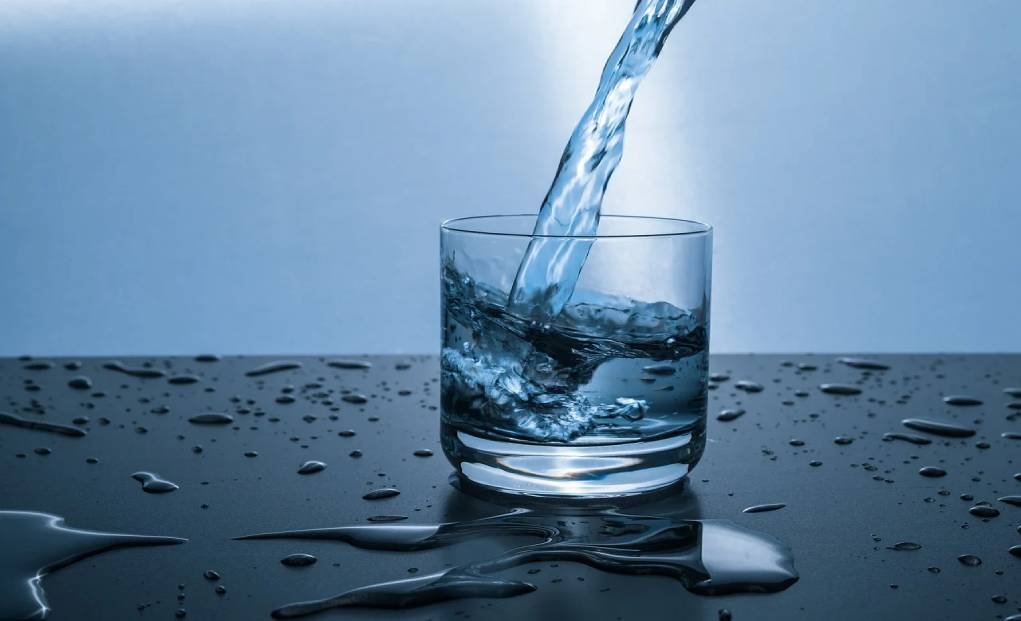New Delhi, 15 August 2025: Water is fundamental to life. We know that staying hydrated is vital for energy, digestion, and overall health. Yet, when it comes to drinking water around meals, opinions vary—especially when viewed through the lens of Ayurveda, the 5,000-year-old holistic wellness system.
In Western nutrition, the emphasis is often on hydration and daily water intake. Ayurveda, however, places a strong focus on digestive fire (agni) and believes that how, when, and what kind of water you drink can affect your digestion more than you might think. In this article, we’ll explore Ayurvedic perspectives alongside modern science, so you can make an informed choice grounded in tradition and evidence.
1. Understanding Digestive Fire (Agni) in Ayurveda
Ayurveda teaches that Agni, or digestive fire, governs how well your body digests food, absorbs nutrients, and expels waste. According to Ayurvedic principles:
- Drinking large amounts of cold water immediately after a meal can dampen Agni, leading to sluggish digestion, bloating, or gas.
- The ideal scenario involves sipping warm or room-temperature water during meals to help digest food without extinguishing digestive fire.
The overarching Ayurvedic belief is that strong digestion supports overall mind-body health, while diminished Agni can lead to imbalances or disease over time.
2. Why Ayurveda Suggests Caution with Post-Meal Water
According to Ayurvedic wisdom, here’s why drinking too much water right after eating may be suboptimal:
- Weakens digestive enzymes: Water dilutes the digestive fluids your stomach produces to break down food.
- Slows stomach emptying: This prolongs digestion, potentially causing heaviness or gas.
- Disturbs nutrient absorption: Over time, slowed digestion could affect how your body absorbs nutrients.
That said, Ayurveda emphasizes common sense and individual differences. If sipping a small amount of warm water post-meal helps you feel better, that’s also acceptable.
3. When Is It Best to Drink Water After Meals?
Modern hydration guidelines emphasize importance of water intake spread throughout the day—but timing can make a difference. Ayurveda generally recommends:
- Wait 20–30 minutes after eating before drinking significant amounts of water, to allow digestion to initiate.
- Opt for water at room temperature or slightly warm, not ice-cold.
- Avoid gulping or drinking hurriedly—take small sips if needed.
This timing supports digestion and helps maintain metabolic balance.
4. Modern Science: Is There Evidence for Delaying Post-Meal Water?
While Ayurveda offers a thoughtful framework, Western research confirms a few key points:
- Cold water can temporarily slow gastric emptying, which is sometimes used purposely (e.g. to manage blood sugar after a heavy meal).
- Drinking moderate amounts of water doesn’t significantly impair digestion—in fact, it may help food move more smoothly through the gut.
- Hydrating between meals is still essential for nutrient absorption, energy, and metabolic balance.
In essence: small amounts of water after a meal won’t harm most people, but excessive amounts, especially cold water, may cause discomfort.
5. Ayurvedic Tips for Hydration and Digestion
Here are practical steps based on Ayurvedic wisdom for better digestion and hydration:
- Drink warm water first thing in the morning to kickstart digestion and metabolism.
- Before meals, sip warm or room-temperature water to prepare the digestive system.
- During meals, if needed, take small sips to aid swallowing—but avoid large volumes.
- After meals, wait at least 20–30 minutes before drinking water and ensure it is warm or mild.
- Avoid iced water or cold beverages with meals or after eating.
- If bloated, try swishing (gargling) warm water for a minute or two to hydrate the mouth without impacting digestion.
6. Digestion-Boosting Beverages After Meals
In Ayurveda, certain drinks after meals are believed to support digestion:
- Warm water with a pinch of ginger or a dash of lemon: Helps stimulate digestion.
- Cumin, coriander, and fennel tea (CCF tea): This blend is classic in Ayurveda for aiding digestion, reducing gas, and gently warming the system.
- Herbal teas like mint or carom (ajwain): These can soothe the gut without interfering with digestion.
Avoid mint or strong bitter teas that can prematurely reverse the digestive process.
7. Who Should Be Extra Mindful?
Certain individuals may be more sensitive to post-meal hydration:
- People with IBS, acid reflux, or SIBO may find that too much water—or cold water—can worsen symptoms.
- Individuals with weakened digestion may benefit from following Ayurvedic practices more strictly.
- Athletes or those targeting weight management may use cold water after meals to temporarily slow digestion for appetite control—but moderation is key.
8. Ayurveda-Inspired Water Practices to Try Today
Here’s a sample routine based on Ayurvedic principles, aligned with modern hydration guidelines:
| Time | Practice |
|---|---|
| Morning | Drink a glass of warm water on an empty stomach |
| Pre-meal | Sip warm water to prepare digestion |
| During meal | Sip small amounts if needed, not gulping large amounts |
| Post-meal (0–20 m) | Avoid cold or large water intake |
| Post-meal (20–30 m) | If thirsty, sip warm water or herbal digestive tea |
| Evening | Warm lemon water or a soothing herbal infusion |
| Throughout the day | Hydrate with small sips of water—stay consistent |
9. Combining Ayurveda with Smart Hydration
To merge the best of both worlds:
- Listen to your body: If you feel thirsty right after eating, a small warm sip is okay.
- Prioritize hydration: Consuming plenty of water outside meal times supports health and digestion.
- Balance and moderation: Ayurveda reminds us that extremes are counterproductive—adapt these practices gently based on how your body feels.
- Let digestion lead the way: Adjust water intake in relation to your individual response to meals and stress levels.
The question “Should you drink water after meals?” may not have a one-size-fits-all answer. Ayurveda offers a holistic, digestion-centered perspective—one that values gut balance above all. Traditional wisdom recommends consuming warm or room-temperature water and waiting about 20–30 minutes after a meal before drinking larger amounts.
Modern science supports moderation and emphasizes the importance of hydration overall. Your best bet: hydrate regularly throughout the day, use a little warm water to aid digestion when needed, and pay attention to how your gut responds. Establish a mindful hydration routine that honors both ancient wisdom and current science—and your body will thank you.







